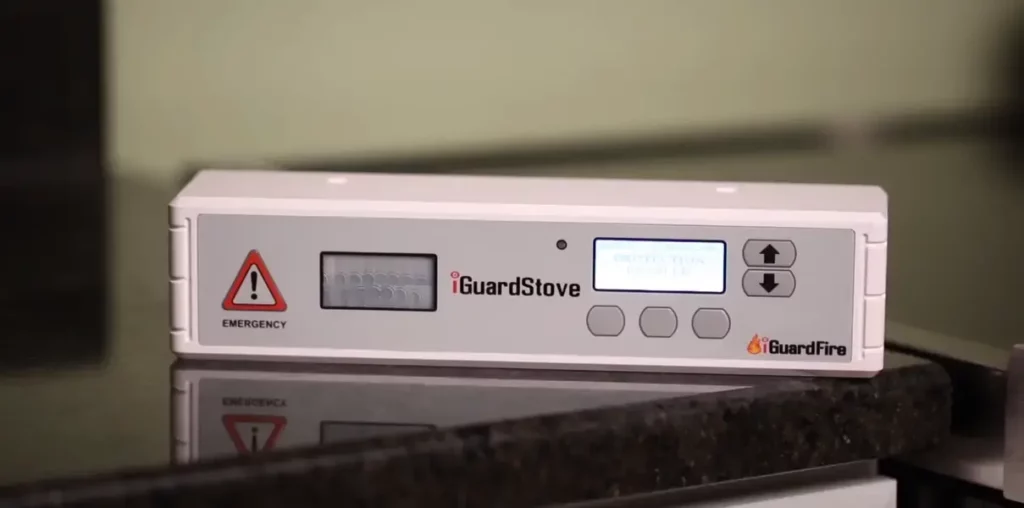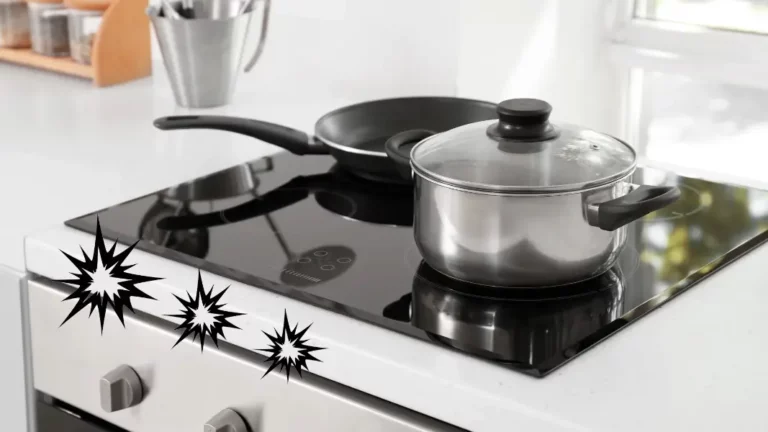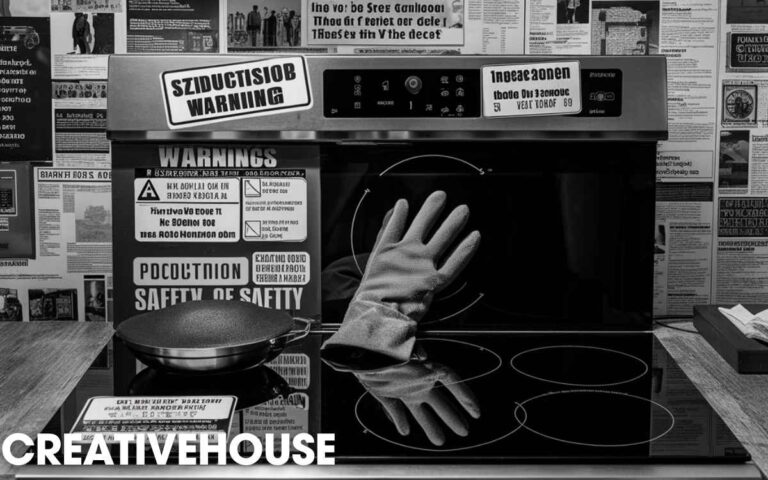When you leave an electric stove on for a long time and there is nothing on the cooktop, the stove tends to shut off automatically. This is a normal functionality of the device.
But if your electric stove automatic shut off when you are cooking and never gets on, that means there is a problem with your electric stove.
Key Takeaway

Why Does Electric Stove Automatic Shut Off?
Some electric stoves have a feature called “Auto Shut-Off” that will turn off the stove after it has not been used for a certain period. This feature is for your safety to prevent accidents.
However, not all electric stoves have an automatic shut-off feature, so it’s important to check your user manual or contact the manufacturer to find out if your stove has it.
If your electric stove was made in 1995 or later, it has a high chance your stove has this built-in automatic shut-off feature.
You can easily customize it with the automatic turn-off feature nowadays. It makes sure your stove does not overheat and makes it a fire hazard.
But mechanically the electric stoves are made to cycle on and off. Because electric stoves use coil burners and radiant burners on a glass cooking surface. The cycle on and off maintains an even heat on the cooktop.
If you set the heat too high it will start cycling the heat using the On/Off feature. And if you set low heat, the burner will be on until you turn it off.
If your stove is turning off by itself while you are cooking and never gets on, that means there is a problem inside your electric stove. And this is not a feature.
Electric Stoves Shut Off Safety Device
If you want to install a safety device to automatically shut off your electric stove, there are some safety devices you can use. FireAvert and iGuard are the two most popular automatic stove shut-off devices you can use.
They both have features like:
- Manual Timer
- Automatic Shut Off feature
- Activity Monitoring
- Calendar
- Smoke Detector (FireAvert) and so on
If you have an old stove it is highly recommended to install one of them. To install any of them you will need a professional.
Electric Stove Keeps Turning Off: Reasons and Fix
Many potential reasons could lead to an electric stove automatic shutting off. Here are some ways to diagnose it and fix the problem:
1. Overheating:
As I discussed earlier your electric stove automatically shuts off if the cooktop burner is overheating. This is a safety feature that several stoves made in the late 1990s have this function.
The majority of modern electric stoves are built with this functionality. General electronics, LG Electric Range, and KitchenAid have Auto Shut-Off built-in and you can customize the timing too.
2. Faulty Elements:
A faulty element causes electric burners to shut off automatically. A defective element is frequently caused by damage, wear and tear, or spills and grease.
Check the problem when the stove is cool and make sure you unplug the power of the stove. If you find any faulty element, change it by yourself or call a professional.
3. Electrical or Wiring Isues:
Stoves get dirty easily. When food gets into the electrical components, it ruins the electrical circuits inside the stove. And if your stove is very old, it is normal to face wiring issues.
Call a professional to thoroughly inspect the stove and fix it. And if your stove is very old, consider changing it.
4. Tripped Circuit Breaker:
If the stove’s circuit breaker is tripped, reset it. If the circuit breaker trips again, it could be a sign of a problem with the stove or the electrical wiring.
5. Faulty Control Board:
If the stove’s control board is faulty, it could cause the stove to turn off unexpectedly.
To check the control board, you will need a multimeter. Set the multimeter to read volts and measure the voltage across the control board terminals. The voltage should be within the range specified in the stove’s owner’s manual.
If the voltage is outside of this range, the control board is faulty and needs to be replaced.
6. Poor Ventilation:
If your kitchen has a poor ventilation system, especially around the stove, it can make your stove overheat. And from the safety feature, it will automatically shut off and never get on.
To fix this improve the ventilation of your kitchen. Upgrade the chimney and do not put a new stove directly against a wall.
7. Power Surge and Voltage Fluctuation
Power surges can be caused by lightning strikes, power grid problems, or even turning on a large appliance, such as an air conditioner or refrigerator. When a power surge occurs, the extra voltage can flow through the electric stove’s heating elements ruining the electrical circuits. And that makes your electric stove automatically shut off.
When a voltage fluctuation occurs, it can cause the electric stove’s heating elements to receive too much or too little voltage. And eventually makes your electric stove shut off.
To fix this you have to call an electrician to check your home’s electrical system. Use surge protectors for your electronic stove to equal the sudden power surges and voltage drops.
Frequently Asked Questions- FAQs
Why does my electric hob keep turning on and off?
This is a normal functionality of an electric stove. By cycling on and off, the stove controls the temperature and regulates through the cooktop.
Can I leave my electric stove on all night?
Yes, you can and if your electric stove is from this generation, there is a safety feature that will automatically shut off the stove after 30 minutes of inactivity.
Do all electric stoves have an automatic shut-off feature?
No. only modern electric stoves have the automatic shut-off feature.
Why does my hot plate keep turning off?
If your hot plate is left on for too long it will turn off.
What causes stoves to go out?
Faulty wirings, burnt wires, and extreme power surges can destroy the inner components of an electric stove. And if any of these happens, your electric stove can die forever.





